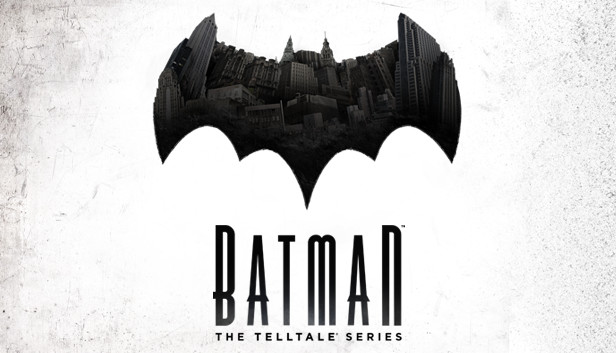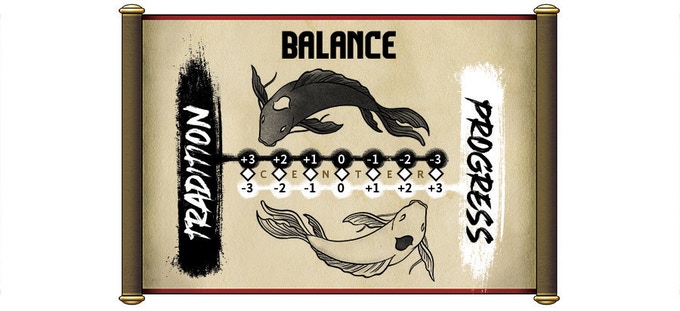It’s Time to Abandon Morality Systems…in Games
It’s Time to Abandon Morality Systems…in Games
I am a little behind on the times, but I have spent the last month working my way through Marvel’s Midnight Suns. The initial release was plagued with performance issues, but that has since settled and even optimized for the Steam Deck. So when it was on sale, I picked up the combination tactical strategy and card based roleplay game, and I can genuinely say I enjoyed the game. Out of the 100 in-game days I spent, the vast majority was doing random side quests just to play with the different decks of different heroes. Occasionally, I participated in a weird Persona-esque social link system that featured several weird occurrences including throwing Magik a surprise birthday, participating in a book club with Blade so he could hook up with Captain Marvel, and solving the secret of the Salem Witch Trials. And throughout all of this narrative, at various points in time I was required to respond with certain answers designated as “Light” and “Dark” aka a morality system.

The Light/Dark morality system and its partner the binary karma meter is older than dirt. The concept of alignment has been around since at least the original Dungeons & Dragons, and even then, I think many of my contemporaries would point to Mass Effect as reigniting the popularity of the system. Now, here’s the thing. In Marvel’s Midnight Suns, the morality system has absolutely no impact on the narrative whatsoever. At best, it causes minor fluctuations in the arbitrary friendship meters in exchange for greater rewards for certain playstyles. At worst, it’s a completely superfluous system that adds absolutely nothing to the great narrative and only changes things on the most basic cosmetic level. For all of the pontificating, the meditations of harnessing dark magics, the absorbing of dark essence, greater goods, lesser evils, none of it mattered. The story played exactly the same and if I did a second playthrough…well honestly…I would probably skip every single cutscene and mash A as quickly as possible selecting, but I would do so with the dark aligned options just to try the different cards and watch as my gruffer Hunter proceeds to do everything relatively the same with a little bit more snark. It’s not even the illusion of choice, it’s the illusion of choice of choice.
Part of this stems from the mechanical ties that a morality system has. There are clear benefits for always selecting the option aligned to you, and there is very little reason to deviate. Whether it’s any of the Star Wars games, Infamous: Second Son, Mass Effect, or even going back to the original Paladin in Dungeons & Dragons, it doesn’t make sense to be morally gray. Paladins in D&D are probably the most egregious example as actively straying away from the Lawful Good (or whatever alignment your variant Paladin is) would strip them of their powers entirely. But outside of that, most of the systems incentivize consistency which makes to a degree, but it also makes for a much more linear gaming experience.

And while I’m not one to sing any praise to Mass Effect: Andromeda, a game best described as “okay” and “not quite the worthy successor to the pedigree of the franchise it bears,” one of the nicer changes in pace was that the dialog options did not have clear cut decisions. There was no clear flag or signposts. The decisions had impact, and it actually felt like your Ryder was a more complex person than just the upstanding Paragon Shepherd or the brooding Renegade Shepherd.
This binary format also impacts non-RPGs if we take a look at visual novels and visual novel-esque games like the original Telltale games although in a slightly different way. When designing a game with multiple branching, intersecting paths, all of those paths have to be defined…lest you end up with a Bandersnatch. But one of the things that designers have noticed is that there were several occasions where the overwhelming majority of the player-base opted to take the less moral option.

What the Walking Dead games ended up with splits that idea even more when it comes to morally grey zombie apocalypses; however, here are some fun statistics from the first Batman:
- 70% of players gave Falcone pain medication to ease his suffering.
- 92.8% continued to fund Harvey’s campaign despite Harvey having to abandoned ties
- 68% assured that Alfred wasn’t at fault for the sins of Thomas Wayne
And it gets to a point where an equal development time has to be devoted to a path that the vast majority of the players won’t ever experience because of this faux level of critical thinking. And at least the Telltale games are designed with this plethora of choices in mind, and even though key events will always play out in similar ways, there is enough differentiation in the smaller choices that I don’t have much qualms.
But too often, the light/dark morality system is shoehorned into games as an afterthought, a superficial layering that detracts more than it adds. And there are games that have successfully implemented these systems (Dishonored, Red Death Redemption), but if Midnight Suns is any indication, the system and the novelty are worn out. It’s gotten to the point where this trend has impacted how I approach teaching new players about Dungeons & Dragons. I ask them not to view alignment as dogma for the character but as a baseline for the actions. It certainly helps that the typical player always manages to make the buck wildest decision in the name of whatever their current motivation is, and I haven’t had a Paladin PC in ages. However, the point stands that the arbitrary 3×3 grid summarizing morality is not useful.

If incorporated into the design, morality system can add a layer of complexity (Undertale being one of the more modern prime examples and deconstructions), but if we are going to go down that route, I urge designers to branch out from the well-trodden paths. Griftlands relationship centric system serves as a great example of making individual choices matter within context as the different NPCs you interact with have different factions, and it creates a tangled web of choices. Furthermore, newer TTRPGs such as Tales of Xadia and Avatar: The Last Airbender offer individualized scales that the player opts into as part of character creation. Morality systems are clearly crucial in society, but in games, I think we can shift focus just a little bit.
Want to get Black Nerd Problems updates sent directly to you? Sign up here! Follow us on Twitter, Facebook, Youtube, and Instagram!
The post It’s Time to Abandon Morality Systems…in Games appeared first on Black Nerd Problems.
